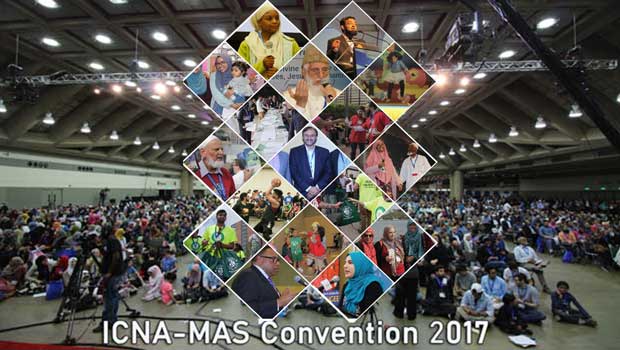NNet, although presented under a different term, is not a novel concept but rather a variation of existing practices such as usra (a tight-knit group, close like a family, who come together for religious/spiritual purposes) or halaqa (study circle). NNet’s origins can be traced back to the early days of Islam. Upon embracing Islam, the Sahabah sought guidance and fellowship in the first usra convened in the home of one of the companions of the Prophet, Al-Arqam. Following the second pledge of Aqabah, Prophet Muhammad (s) selected 12 naqeebs (leaders) from 73 individuals, ensuring comprehensive leadership and supportive care for all members of the community.
Throughout Islamic history, NNet or usra has remained a recurrent model of Tarbiya, spiritual nurturing. Contemporary Islamic movements led by figures like Hasanul Banna and Mawdudi have also embraced NNet/Usra as an integral tool for individual and collective development.
This time-tested approach has proven to be highly effective in fostering personal growth and self-development, according to an Islamic model, within the Muslim community.
 Implementing the Teachings of Surah al-‘Asr
Implementing the Teachings of Surah al-‘Asr
Allah SWT tells us in Surah al-‘Asr, “…Indeed, humanity is at loss, except those who believe and do righteous deeds, and enjoin truth and enjoin patience and perseverance” (Qur’an 103:2-3).
NNets are a special way for Muslims to grow closer to Allah SWT and deepen their faith. Unlike big events such as lectures or conventions, NNets happen every week. They offer people a regular opportunity to deepen their understanding of Islam and themselves. In NNets, individuals discuss various aspects of their faith. They talk about what the Qur’an teaches and how it relates to their daily lives. Through these discussions, they become better at thoughtful reflection and gain a clearer understanding of Islam.
A significant aspect of NNets is the focus on achieving a deeper understanding of the Qur’an in order to put goodness into practice. Faith without good acts is incomplete, as articulated in the above verses. Each week, participants gather to read and discuss Qur’anic verses. They explore the meanings of the verses and consider how they can apply them in their lives in a truthful and responsible manner.
NNets also serve as a support system for dealing with life’s challenges. By discussing various topics and drawing upon Islamic teachings which offer ways to cope with challenges and adversities, people learn to face difficulties with patience and perseverance, to strive for solutions with confidence and resilience. They use the wisdom from the Qur’an and the teachings of Prophet Muhammad to navigate through tough times.
Beyond individual growth, NNets foster a sense of community among Muslims. Regular gatherings allow people to come together, share experiences, and support one another. This sense of unity strengthens the spiritual journey for everyone involved. Moreover, NNets benefit the broader community as well. As individuals deepen their knowledge of Islam, they can share its message with others in an informed and understanding manner. By promoting empathy and awareness, NNets contribute to creating a more harmonious world.
Intentions and Commitment: Prioritizing Participation
Before every gathering, it’s important for participants to refresh their intentions and ready themselves spiritually, emotionally, physically, and mentally. Giving the meeting precedence in one’s schedule involves setting aside specific time for preparation and active involvement.
Being meticulous and punctual with assigned responsibilities highlights the significance of discipline in NNet involvement. Participants are encouraged to view meetings as chances for religious education, of course, but also for personal development, practicing moderation in speech, and actively listening to others.
The success of NNets depends on members being dedicated and consistently participating. When individuals fully engage in the NNet’s activities, they undergo significant personal growth, creating an environment where Islamic principles and values are internalized. NNets thrive on the dedication of committed members who exemplify unwavering commitment to the group’s objectives. These individuals serve as the backbone of the NNet, ensuring the continuity and vitality of its activities.
Embracing Discussion and Reflection
NNet sessions shouldn’t just be about one person talking and everyone else just listening quietly. They should encourage critical thinking and active involvement. Individuals should share their ideas, understanding, and own experiences to make the discussion more mutually engaging and interesting. This format differs substantially from that of a lecture where only one person talks and others don’t get a chance to join in.
It is fine for one individual to lead the discussion, as long as there is a defined aim of encouraging everyone to participate. The one leading the discussion can facilitate this by presenting brief content such as a couple of Qur’anic verses rather than ten, for example. If the few verses chosen lend themselves to deeper analysis and understanding, it opens the discussion to considerations and points of linguistics, history and historical context of the verses, comparative religion, as well as practical implications and Islamic obligations in our daily lives.
By doing this, we not only learn more about the Qur’an and the deen of Allah SWT and thus feel closer to Allah, we also develop a sense of mutual trust and goodwill as we try to understand, both as individuals and as a group, the tenets and teachings being discussed.
The Crucial Role of the Coordinator
The NNet coordinator plays a crucial role in ensuring the regularity of the halaqa and the punctuality of members. They keep track of attendance and reach out to absent members to understand their situation and provide support or gather feedback. This simple act of reaching out shows that the organization values its members and cares about their well-being.
The role of the NNet coordinator involves a deeper sense of leadership. This leadership fosters character development among members, modeling and nurturing honesty, responsibility, compassion, and discipline. These underscore a commitment to the NNet’s goals and objectives and lead to dedication of the participants.
 A Platform for Personal Development
A Platform for Personal Development
NNets serve as fertile ground for emotional, intellectual, and spiritual growth. By fostering genuine bonds of brotherhood, NNets promote mutual trust, understanding, and a shared dedication to Islam and its commitments to serve truth, justice, and peace.
Solidarity among members manifests in cooperation in Islamic endeavors, further strengthening the collective resolve of the NNet community. The prophetic tradition of appointing naqeebs (leaders) underscores the importance of communal solidarity structured around taqwa (consciousness of God; fear as well as love of Him; piety) both in the leadership and the group objectives of personal growth and development.
Beyond the acquisition of knowledge, NNets foster the development of essential life skills, including critical thinking, empathy, and effective communication. These skills, honed through preparation and discussion, equip participants to navigate diverse challenges and contribute meaningfully to their communities.
NNets not only enrich individual participants but also benefit their families and wider social circles. Participants emerge as sources of inspiration and wisdom, equipped to share spiritual and practical insights with loved ones and acquaintances alike.
 Fostering Meaningful Connections
Fostering Meaningful Connections
NNets provide a platform for connecting with like-minded individuals who share common values and aspirations. These connections serve as a source of strength and support, enriching the lives of participants and nurturing a sense of belonging within the broader Muslim community.
In essence, NNets embody the spirit of unity, mutual support, and spiritual growth, serving as the smallest, yet highly impactful, unit of the Ummah.
Through ta’aruf (deep knowledge of one another), tafahum (mutual understanding), and takaful (mutual support and solidarity), NNets lay the foundation for a cohesive and empowered Muslim community.
Conclusion
NNets are an important part of spiritual growth in the Muslim community. They offer a regular chance for people to learn, reflect, and grow together. Through NNets, individuals deepen their understanding of Islam, connect with the Qur’an, grow closer to Allah SWT, and face life’s challenges with strength and wisdom. Plus, NNets create a sense of community and support, enriching the lives of everyone involved and spreading peace and understanding in society.






